Miscellaneous - Interview with John Askew
by John Clarkson
published: 16 / 1 / 2003

intro
Oregon-based alternative rock label FILM Guerrero has a rapidly escalating international reputation. Back for a second interview, label boss John Askew takes time out from his busy schedule to talk about his label's frantic last 18 months
When Pennyblackmusic first spoke to John Askew about his Portland, Oregon-based alternative rock label, FILM Guerrero, in July 2001, it had been established for a little over a year, and was still at a fledgling stage. Askew, who is both a musician and an engineer, then had just three acts on his roster, insular local indie folk act Norfolk and Western ; Buellton, an ultra-melodic pop outfit from California, and his own group, Tracker. He had put out just six releases. Askew originally formed FILM Guerrero in 2000, simply as a means of releasing 'Ames', the debut album by Tracker, which he had recorded largely at night and on days off at the Type Foundry, a local Portland studio, that specialises in using old-fashioned analog equipment, and where he works part-time. Establishing the foundations for FILM Guerrero with its release, and finding it as easy to talk about fronting a label as a band, he started releasing albums by other groups later that year. From the beginning, Askew has run FILM Guerrero, as he stipulates in the label's original manifesto, with a philosophy that encourages artists to release efforts "completely conceived and controlled by... themselves." As he told Pennyblackmusic last time around, "the idea...is to try and keep FILM Guerrero unique among labels and to support musicians or bands who can put out something that they can see all the way through to the end." In the 18 months or so since Pennyblackmusic last talked to Askew, FILM Guerrero has grown in both status and structure. It put out 'at the end of 2001 'Soundtracks', the instrumental debut solo release of the French guitarist Gabriel "Naim" Amor. who is best known for his work as one half of the Amor/Belhom Duo, and then in the summer of 2002 'Winter Farewell', the third album by Norfolk and Western. It also released in the middle of last year the eponymous frst release of Transmissionary Six, the Seattle-based group which is fronted by Walkabouts drummer Terri Moeller and ex-Willard Grant Conspiracy guitarist Paul Austin. 2003 promises to be FILM Guerrero's busiest year yet. It will be releasing in February two debut albums by new acts, the Graves 'Love, Love, Love' and Peace Harbor's 'Not Yet Fire', and then in early March, as its fifteenth release, Transmissionary Six's second album, 'Spooked'. 'These Walls are Bare', the first solo album of Adam Selzer, the owner of the Type Foundry and the frontman of Norfolk and Western, is also forthcoming. FILM Guerrero has also just released Tracker's second album, 'Polk'. Askew recorded it in the Type Foundry, again at night and during days off, over a year and a half long gestation period. While Askew has a band for live purposes, and the new album features guest appearances from a variety of West Coast musicians including Richmond Fontaine's Dave Harding ; Death Cab for Cutie's Michael Schorr ; Buellton's Erik Herzog and Adam Selzer, Tracker remains essentially a solo project, and Askew, a multi-instrumentalist, played the bulk of the instrumentation on it himself. 'Ames', a loosely-based concept album and "a soundtrack following the travels of one man alone as he drives", was reminiscent of Ry Cooder's 'Paris, Texas' in its epic sparseness, while 'Polk', although remaining equally desolate,is more ambient in tone. With so much having happened at FILM Guerrero in the last year and a half, Pennyblackmusic caught up with Askew to talk to him about 'Polk' and its difficult recording, and also about both the pleasures and occasional tribulations of running a rapidly expanding label. PB : 'Polk' seems a very complex album, more so than 'Ames'. Would you agree with that ? JA : A lot of 'Polk' unfolded as I mastered it. I took it into a professional mastering lab, which I didn't do with 'Ames' and, when I took it home after that, I realized it was more complex than I had originally thought it was. I think that much of that is down to the way in which I recorded it. When I last spoke to you I was still in the process of recording it, but I hit a road block along the way. Part of that was due to the label starting to take off. I had to keep stopping and starting and coming back to it, so by the time I finished it this summer, I had ended up scrapping a lot of my original ideas and starting over. PB : 'Ames' was named after a small town in Iowa. What does 'Polk' get its name from ? Is it another small town ? JA : Yes, it is. Polk is the name of another town in Iowa. I thought the word "Polk' sounded very cool, and I just liked the sound of it. When I first started working on the album, I was thinking of doing another album of road music .It was just a working title, but I got used to and it became easy for me to work with that name. Now that the album's done, the whole content and meaning of the album has changed. PB : The last album was-for want of a better word-a concept album and told of "the travels of one alone in the desert."There were all sorts of desert-themed songs. Do you see this one as another concept album, or more as a collection of songs ? JA :I see this one as less of a concept album. I am not really sure if I see it though as simply a collection of songs. I see the new record more as a linear piece. In other words, the songs sit together. I spent a lot of time, as I did with 'Ames', figuring out how to piece the thing together and to make it seem more like a story. I was definitely not trying to hit it over the head though with a concept theme, because there wasn't one there. PB :'Polk' seems to be a very different album from 'Ames', and much more ambient. Would you agree with that ? JA : Yes I would agree. I think with this record I wanted to bridge the "ambient/instrumental" element of Tracker with the "songs", and to create a slightly more "epic" feel still. It was a much more intentional record in terms of the choices made. For example, where the instrumentals would fit in, how loud vocals would be, how the cross fades made each song feel... I wasn't totally sure if it would work or not but I think it worked. I guess this is really where mastering comes in. Mastering is such a huge part of how the record will happen. It is essential. It puts the story together. The piecing together of tracks... creates the flow and all of that. PB : Some of the songs incorporate at their beginnings and ends handheld recordings made on the road between Seattle and Portland, and also in Florence in Italy in 1996. Can you tell me more about this ? JA : Since we last talked, I have got married. When my wife and I first met, she was living in Seattle, and I was in Portland. I spent hours on the train going back and forth . Generally I take a hand held recorder wherever I go, so I ended up recording things to entertain myself on the train . Some of those recordings made their way onto the album. They sound pretty clear .I am interested in the space between the songs, and they were a great way of tieing songs together. When I was on vacation in Italy in 1996 the Biboli Gardens in Florence were closing. so I put my hand held recorder on. There was this really great announcement to announce the gardens were closing and it kind of echoed around the park which has multiple speakers. I ended up using that as well as a way to keep the songs connected, but also to have a space between them. PB : 'Polk' also includes a cover of Brian Eno's 'Somber Reptiles'. Why did you decide to include that on the record ? JA :I recorded that completely for fun with Michael Schorr . We first started playing it together when we did a tour down the West Coast. We decided to cover that song, and we liked it so much that we decided to record it. When it was done, it seemed to fit in with the direction of the rest of the album, so it ended up on the record. I don't know what people will think about it being on the record, but I kind of think it as an after thought. It is almost irrelevant to me now that it is by Brian Eno. I am hoping that people will just listen to the whole record, and might see it as a neat moment or might only realize afterwards that it is a Brian Eno song. PB : You're a multi-instrumentalist. Which instruments did you play on 'Polk' ? JA : I played around with the guitar, the drums, the bass, piano and banjo. It was primarily just the guitar though , but I hacked my way through with the rest of the instruments. I also played a bit of cello, which until then I had never picked up in my life. I managed to get something out of it though. PB : You recorded the album at Type Foundry where you also do some recording engineering work. In what ways do you feel working at Type Foundry enhanced the recording, and can you think of any ways as well which it perhaps hindered the recording or made things more difficult ? JA : Working at the Type Foundry spawned my interest in making music through Tracker to begin with. The Type Foundry was the starting point of all my musical interest there. It also, therefore, kick started the label and everything that has come with it since. I definitely don't want to do the next Tracker album there though. When I was doing 'Polk', it sometimes became pretty daunting. I would go in to Type Foundry a lot of times and look at this great studio and sit there for hours and not do a thing, because I felt completely overwhelmed. Sometimes the format of working in a studio and having all that access to equipment all the time can make things more difficult because you feel that you want to utilise everything that is there. I now have both a four track and eight track in my house,. You can use the limitations of that kind of equipment to your advantage and not think about things so much. It got to the point with 'Polk' where, as I did a lot of it myself, I really got lonely for interaction. If I had been able to do it at home and it sucked, I would then have been able to just walk away from it and have a few beers or do something else . I would book time at Type Foundry though, and if it didn't go well, I would end up banging my head against the wall all day. PB : Will you do the next album at home ? JA : Yes ! I think that with the new record I am going to try something I have never done before and record it as demos (Laughs), but also map it out more. Tracker is in many ways all about containing the accidents. When the accidents spill all over the place, I take the pieces and pick them up and make something out of them. I think that this time though I would like to do things more in the way that most people work and have more of an idea of what I want to accomplish before I start recording . PB : Do you have a theme or an idea for the next one ? JA : I don't yet at this point. I have a number of things which didn't make it on to the 'Polk' record . There are a few instrumentals and some live tracks that will come out in the Spring time on an EP. Once I am done with those things, I want to start anew. PB : Do you have a title for the new album ? JA : I don't yet. No. PB : You're planning to take Tracker on the road soon. When's that liable to happen ? JA : There will be a number of US shows, mainly on the West Coast, in March.I am also working on coming to Europe later in the year. PB : All the bands on FILM Guerrero are very different from each other . What do you think they share as a common ground ? JA : I would say that they have two things in common. Firstly they all to me have a visual aesthetic when you listen to their music, and secondly they all have a do-it-yourself kind of mentality, In the case of Transmissionary Six , for example, Paul Austin came to me as a fan with their first record. "Here's a CD. Gabriel "Naim" Amor appeared on it. I thought that you might like to hear it." It made it really easy for me to work on it, as it came, so intact. PB : Originally Transmissionary Six self-released that first album, didn't they ? JA : Exactly ! All I had to do was work on the packaging, and then put it through a distribution company a couple of months later. PB : What exactly do you mean when you say the groups share a" a visual aesthetic" ? JA : Perhaps it is just the way I listen to music, but I seem to formulate some kind of visual elements to certain music. Most music actually. So with the releases on FILMguerrero, it seems that they all hold an additional element beyond just the "songs". There is a very strong "epic" undercurrent and "soundtrack" element to the bands ( beyond the obvious " instrumental" releases.) Perhaps this is just my own feeling... but the bands seem to all care a lot about how their records flow...what the "story" is that they are telling, what "mood" the music is creating. For me, this is really important, and from the perspective of the label's aesthetic roots it is a central focus. One more thing, it is, however, ironic that now 3 years into it, that the label more or less is creating that 'visual aesthetic" more than anything. It is the camera and the bands that are the scenes. Some of the newer releases to come are less "soundtrack" orientated and more straight ahead song writer/ band projects. Once slotted into the FILMguerrero fold, they become very "scenic" indeed. ... PB : Your original manifesto of FILM Guerrero was to put out records which "are competely concieved and controlled by the artists themselves." Is that still the main priority ? JA : Yes, very much so . There have been a few situations in which the artists have not been able to contribute as much as they would like, so I'lll step in and help them out, but that is usually just with packaging or graphic idea,. Overall the records come to me, like the Transmissionary Six record, largely intact. I think that as a label FILM Guerrero is much better at helping them to get their idea out there , rather than trying to drastically change things. PB : You have got new CDs coming out by both the Graves and Peace Harbor early in 2003. Who are both these bands? JA : Both the Graves and Peace Harbor albums are first records. The Graves' songs are all by a song-writer Greg Olin. They are a project that I first started listening to because Adam Selzer from Norfolk and Western engineered the album. He phoned me one day and said "This record is turning out to be really great. I think that you will really like it". And so I took it home , and found myself listening to it over and over a weekend, and then got in touch with Greg and offered to release it. When he plays or tours, Greg sometimes play by himself or he may collect a band together, but the Graves are really just a one man operation. Peace Harbour ? It's a fellow by the name of Zak Riles. Zak is the guitar/banjo player in Norfolk and Western,. That record came to me fully complete in the same manner. I listened to it and liked it a lot as well. The natural connection of it being Norfolk and Western made it an obvious release to put out. It's really a beautiful soundtrack instrumental record and reminds me a lot of Papa M or something like that. Very moving. PB : Norfolk and Western recently played a month long tour of Europe as a support to Sparklehorse . How did those shows go? JA : The tour went incredibly well. All the shows were really crowded, and in England they completely sold out. They sold so many CDs that I had to ship some extra copies out (Laughs). They ended up having a complete sales stampede in which they were regularly selling 40 to 50 CDs a night. That totally threw us, because we don't think in numbers like that at all. They called me and told me that they were running out of CDs and had nearly sold out. I had to do some really sensitive foot work to get some more copies out to them. PB : Are you finding it tougher running the record label now that it is gathering such momentum ? JA : Yesh, definitely. I have to work another job to keep the label going, and that has never changed. It seems like my work load has kind of doubled, but I can't actually find more time to do it. I bar tend for a living, and I do a lot of the label work in the late hours. PB : Final question ! Do you see yourself as principally a musician, an engineer or a label owner or all three? JA : I see myself as definitely a musician first, an engineer second and a label owner third. Being a musician and an engineer allowed the label to start, and consequently it has become a business, which is far from my nature. It is very rewarding thing running the label, but it's also far removed from the reason I first got into music. I am very excited about the way it has developed, but I am also really looking forward too to getting back on the road with Tracker and playing some shows. PB : Thank you
Label Articles:-
Film Guerrero (1)Picture Gallery:-
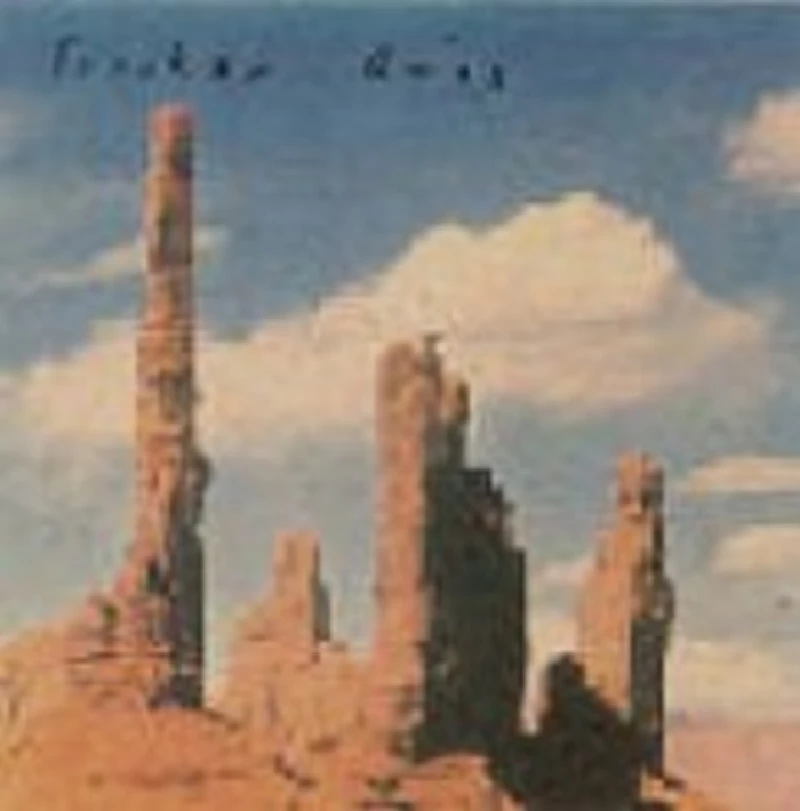
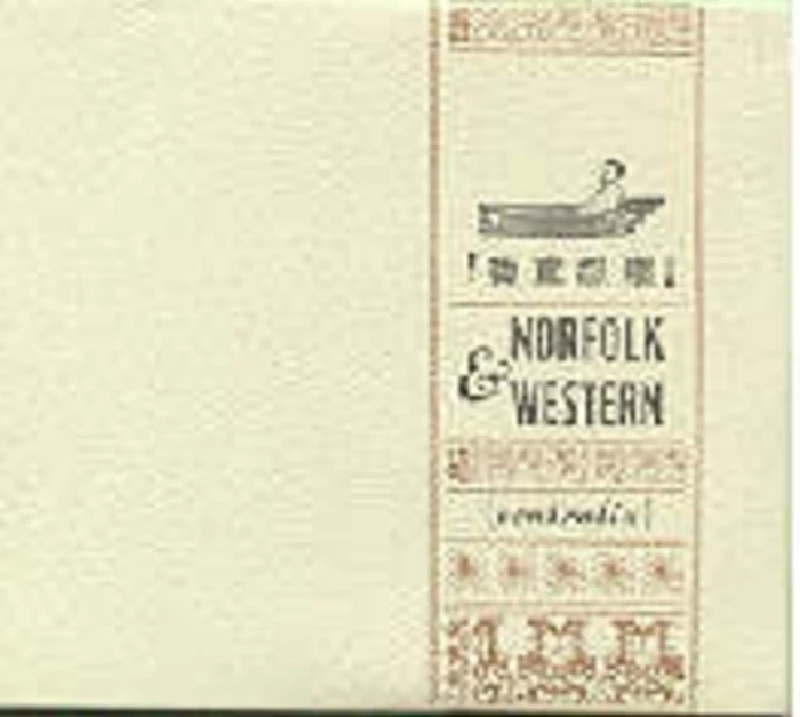
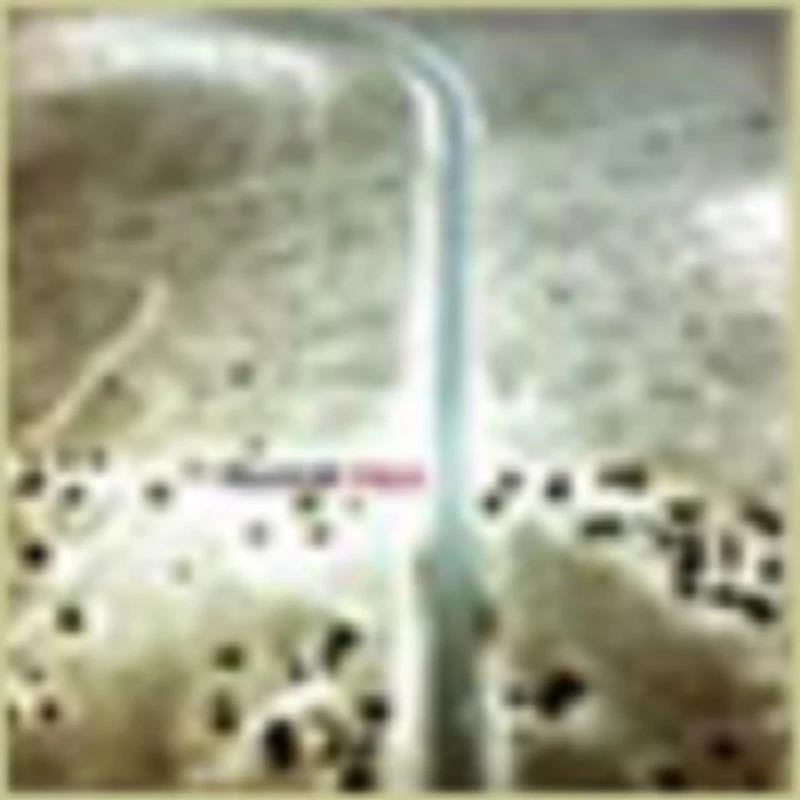
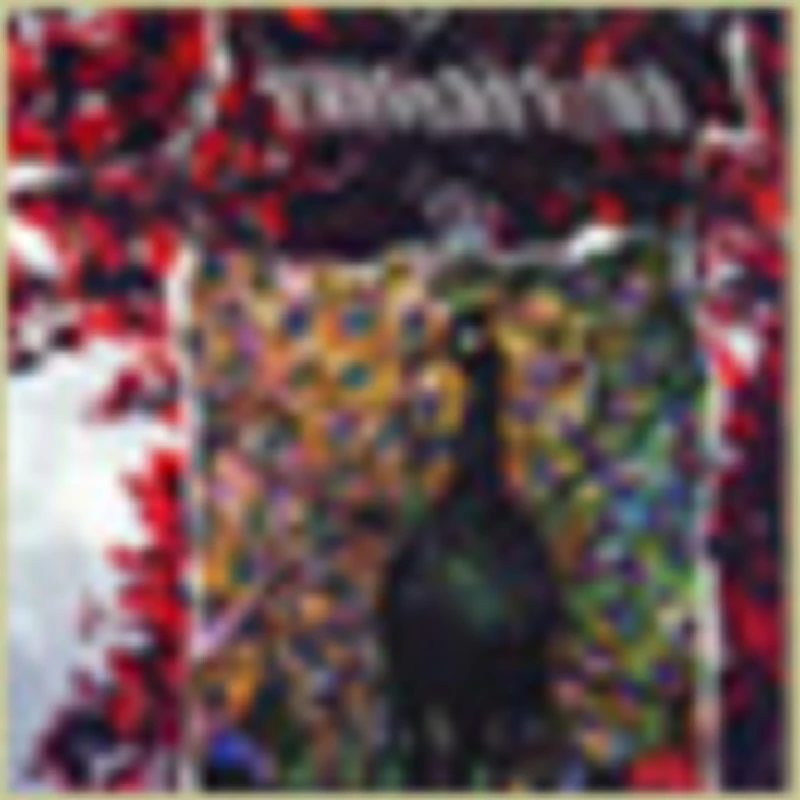
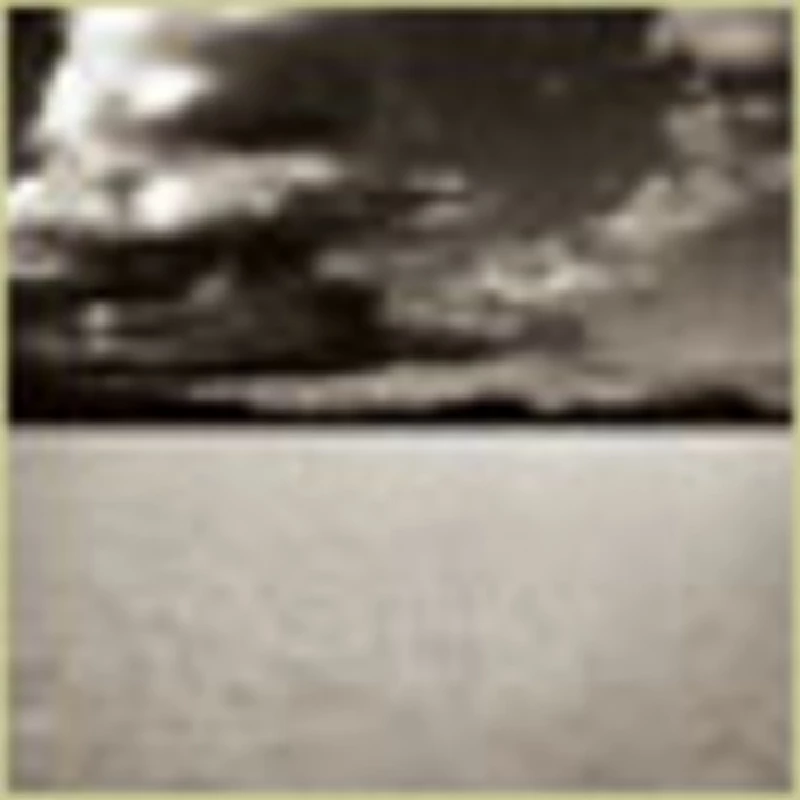
most viewed articles
current edition
Carl Ewens - David Bowie 1964 to 1982 On Track: Every Album, Every SongArmory Show - Interview with Richard Jobson
John McKay - Interview
Colin Blunstone - Thalia Hall, Chicago, 16/7/2025
Billie Eilish - O2 Arena, London, 10/7/2025
Bathers - Photoscapes 1
Loft - Interview
Visor Fest - Valencia, Spain, 26/9/2025...27/9/2025
Sir Tim Rice - Interview
Robert Forster - Interview
previous editions
Manic Street Preachers - (Gig of a Lifetime) Millennium Stadium, Cardiff, December 1999Heavenly - P.U.N.K. Girl EP
Beautiful South - Ten Songs That Made Me Love...
Oasis - Oasis, Earl's Court, London, 1995
Peter Perrett - In Dreams Begin Responsibilities Interview Part One
Boomtown Rats - Ten Songs That Made Me Love....
Coldplay - Wembley Arena. London, 16/8/2022
Prolapse - Interview
Pixies - Ten Songs That Made Me Love...
Trudie Myerscough-Harris - Interview
most viewed reviews
current edition
Davey Woodward - Mumbo in the JumboSick Man of Europe - The Sick Man of Europe
Lucy Spraggan - Other Sides of the Moon
Amy Macdonald - Is This What You've Been Waiting For?
Phew, Erika Kobayashi,, Dieter Moebius - Radium Girls
Suzanne Vega - Flying With Angels
Bush - I Beat Loneliness
Alice Cooper - The Revenge of Alice Cooper
Cynthia Erivo - I Forgive You
Blueboy - 2
Pennyblackmusic Regular Contributors
Adrian Janes
Amanda J. Window
Andrew Twambley
Anthony Dhanendran
Benjamin Howarth
Cila Warncke
Daniel Cressey
Darren Aston
Dastardly
Dave Goodwin
Denzil Watson
Dominic B. Simpson
Eoghan Lyng
Fiona Hutchings
Harry Sherriff
Helen Tipping
Jamie Rowland
John Clarkson
Julie Cruickshank
Kimberly Bright
Lisa Torem
Maarten Schiethart